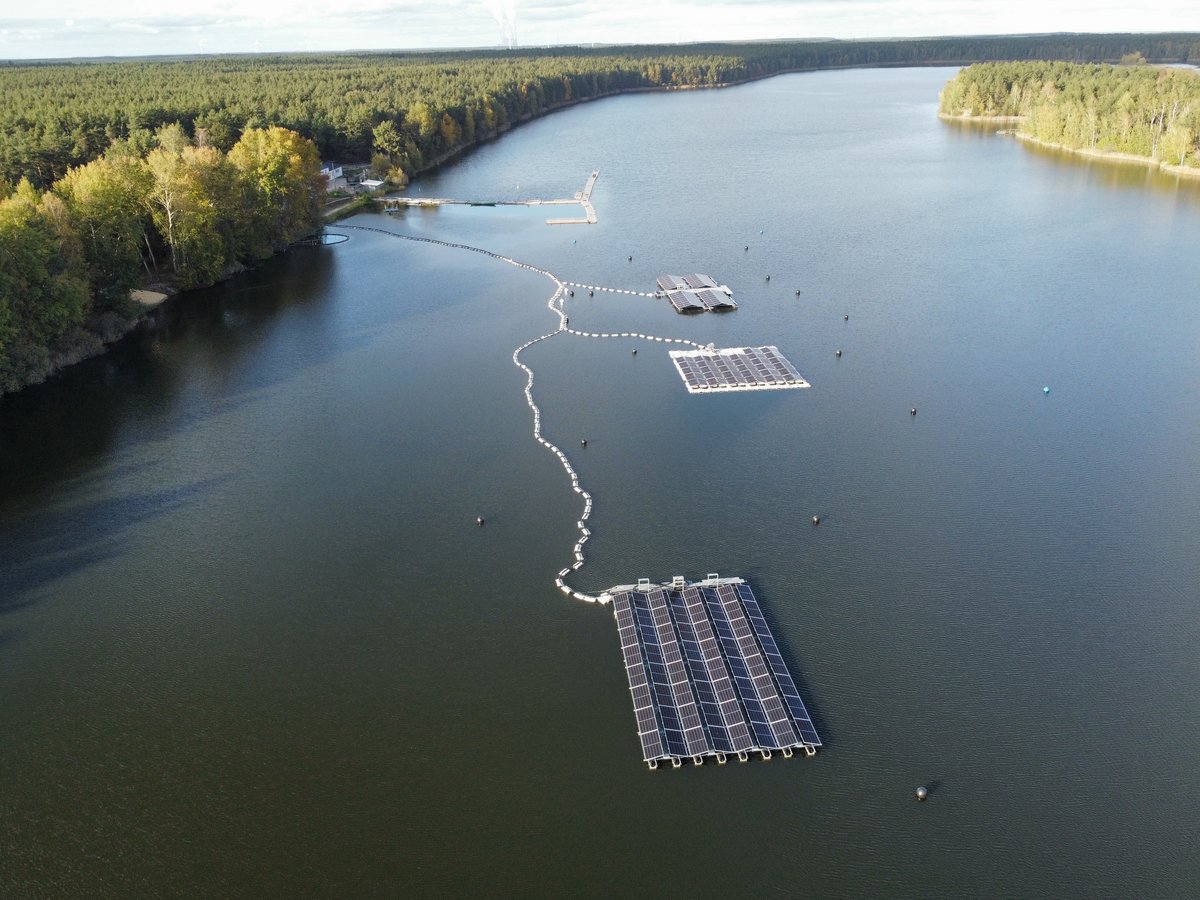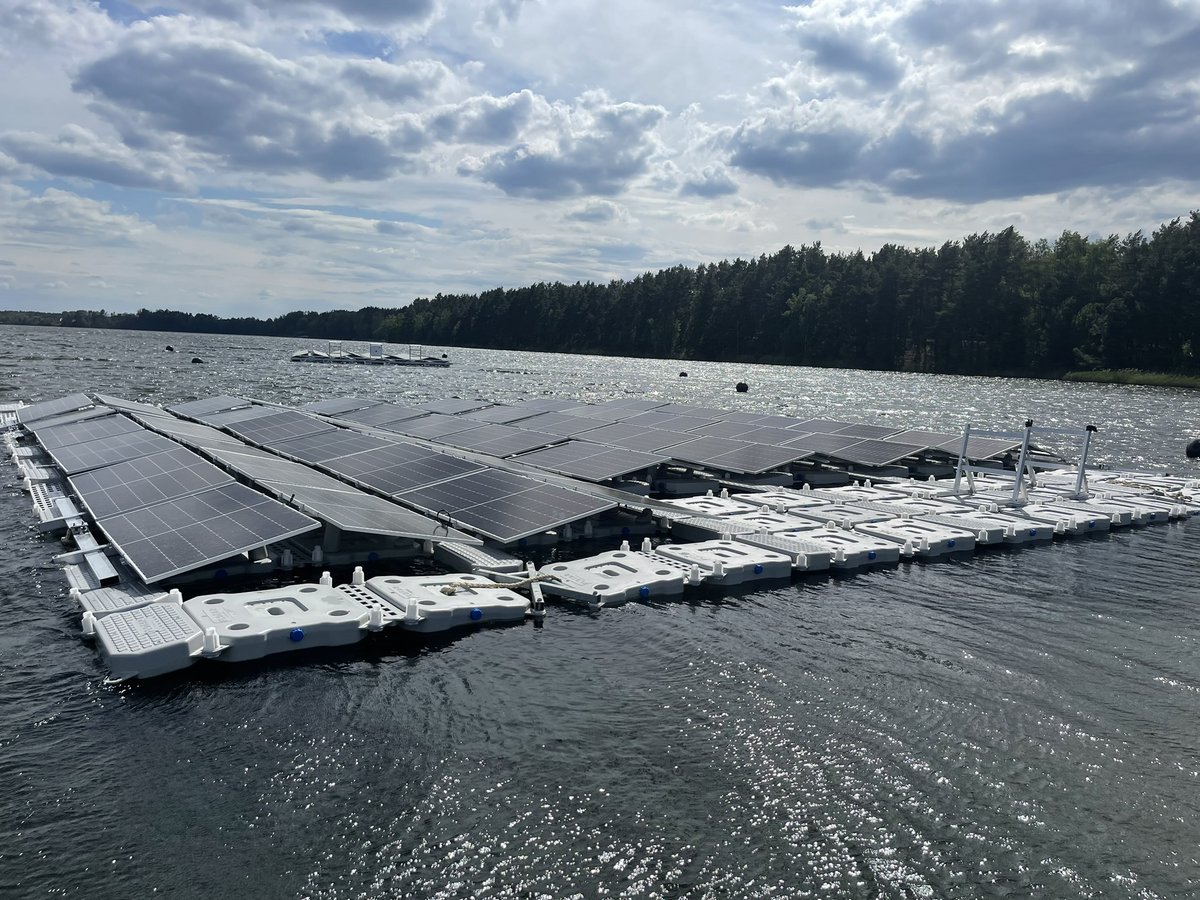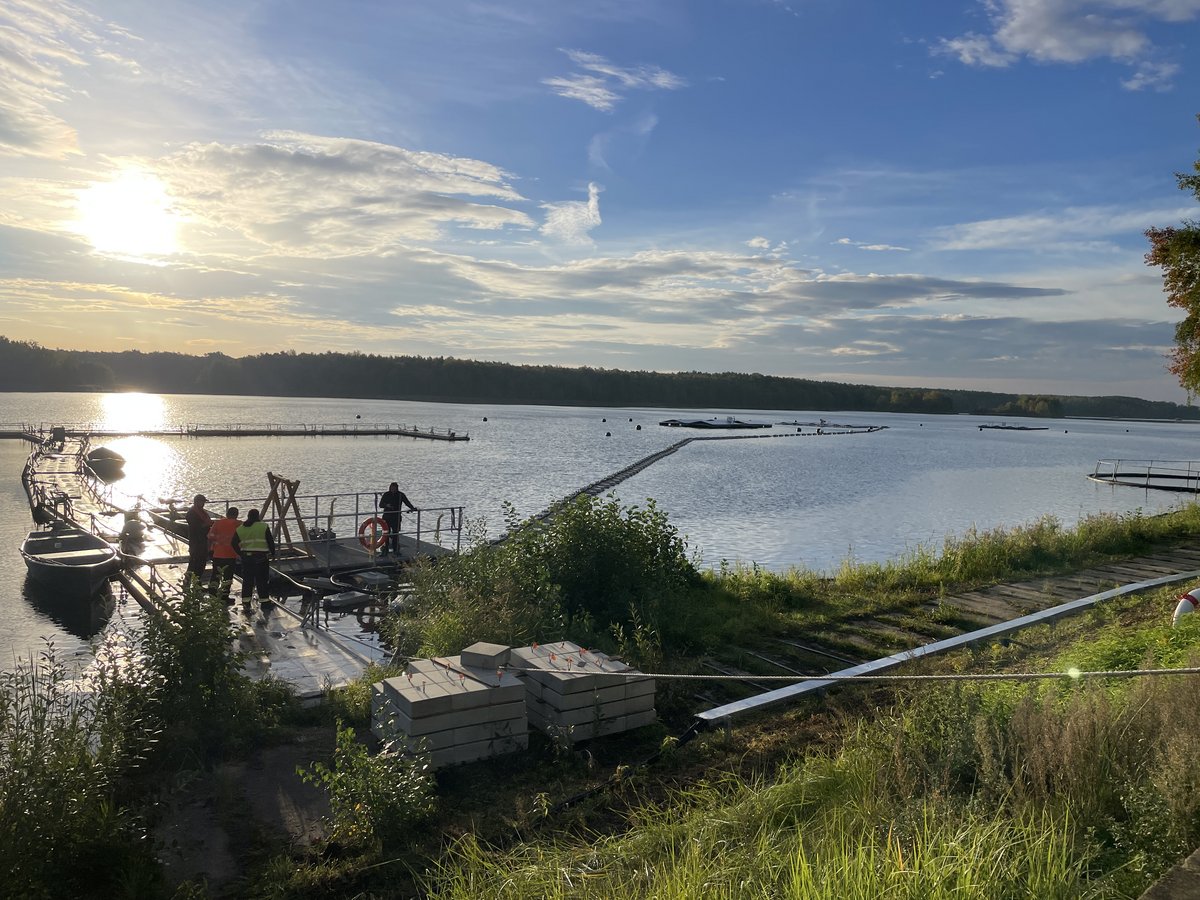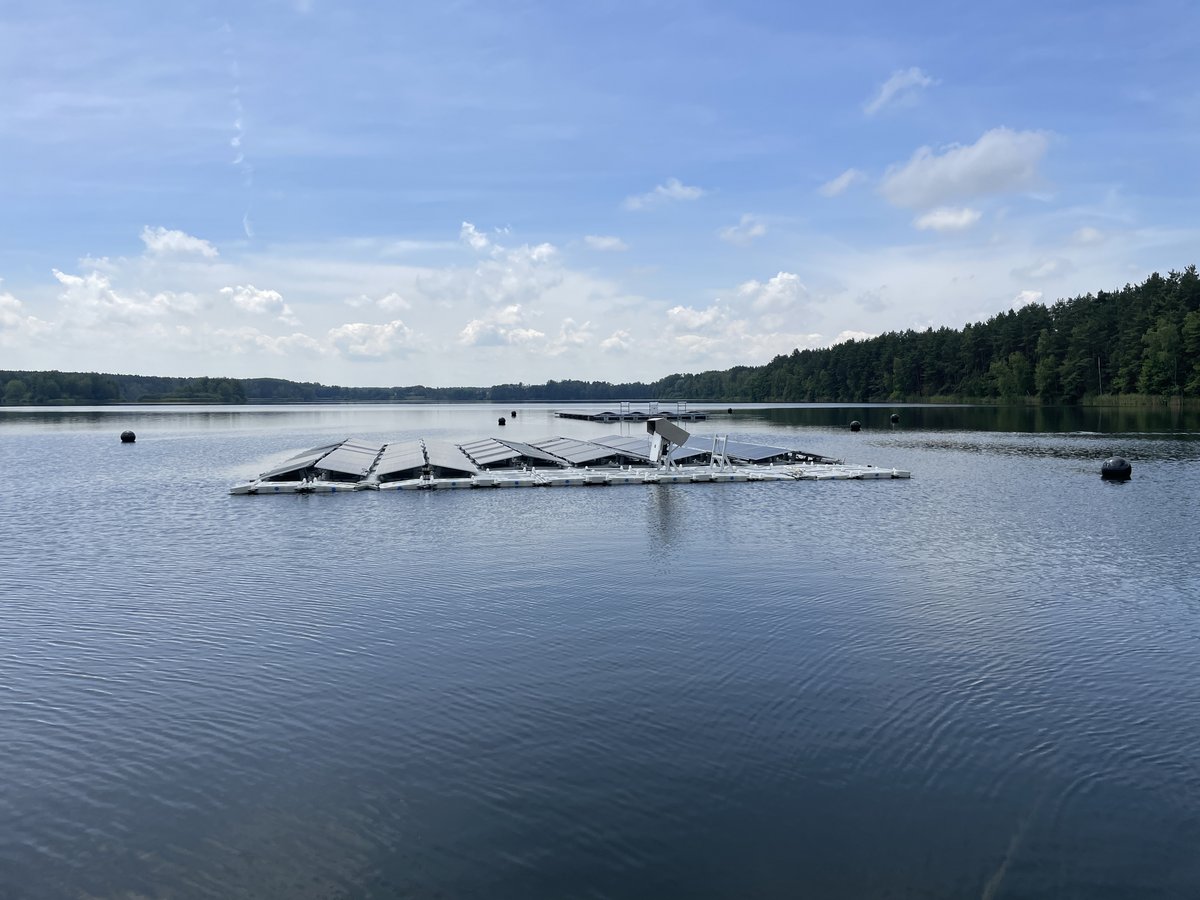Presentation of the "PV2Float" project: Floating solar system on Lake Mortka
The pilot plant will be in operation for up to three years. The project focussed on the further technical development of photovoltaic systems, questions of public acceptance and environmental compatibility. The research project is being funded by the Federal Ministry for Economic Affairs and Climate Protection.
Photovoltaic systems on the roof of a house or on a green field are nothing unusual. However, very few people are aware that solar systems can also float. That could soon change. More than 190 floating solar modules have been installed on Lake Mortka in Lohsa as part of a research project. RWE, the Fraunhofer Institute for Solar Energy Systems ISE and the Brandenburg University of Technology Cottbus-Senftenberg have jointly implemented the pilot system to investigate the extent to which floating solar systems can be realised and operated in harmony with Aquatic ecology. The project is being funded by the Federal Ministry for Economic Affairs and Climate Protection.
The annex was officially inaugurated today in the presence of guests from science, business and politics, including representatives of the Saxon State Ministry for Energy, Climate Protection, Environment and Agriculture and Lohsa's mayor Thomas Leberecht. Interested members of the public also had the opportunity to find out more about floating solar systems and the "PV2Float" research project.
Thomas Leberecht, Mayor of the municipality of Lohsa, explains: "Once created by the flooding of the Werminghoffer open-cast lignite mine, Lake Mortka is now one of the first research sites for floating solar systems in Germany. The technology promises a higher electricity yield, as the cool water can have a positive effect on the efficiency of the solar modules. Another advantage is that previously unused and not for tourism intended open-cast mining lakes can be utilised for green power generation. This holds great potential for the energy transition in Germany and here in our region."
Solar systems learn to swim
Three different floating solar systems were installed on Lake Mortka. With a nominal output of around 30 kilowatts each, these systems are relatively small, yet they provide important insights into the advantages of the various technological solutions, how costs can be reduced and how larger floating solar systems can be implemented in an environmentally friendly way in the future. The research facility on Lake Mortka is to be operated until the end of 2027.
Experienced partners from science and industry
With RWE, Fraunhofer ISE and BTU Cottbus-Senftenberg, three competent partners are driving the research project forward: RWE has many years of experience in the construction and operation of ground-mounted solar plants and already operates a floating photovoltaic plant on a former cooling water lake in the Netherlands. As Europe's largest solar research institute, Fraunhofer ISE develops solutions for floating photovoltaics and other integrated photovoltaic technologies and conducts research into the acceptance of these technologies. BTU Cottbus-Senftenberg has extensive scientific expertise in the field of Aquatic ecology.
RWE
RWE is leading the way to a clean energy world. With its investment and growth strategy Growing Green, RWE is contributing significantly to the success of the energy transition and the decarbonisation of the energy system. Around 20,000 employees work for the company in almost 30 countries worldwide. RWE is already one of the leading companies in the field of renewable energy. RWE is investing billions of euros in expanding its generation portfolio, in particular in offshore and onshore wind, solar energy and batteries. It is perfectly complemented by its global energy trading. RWE is decarbonising its business in line with the 1.5-degree reduction pathway and will phase out coal by 2030. RWE will be net-zero by 2040. Fully in line with the company’s purpose - Our energy for a sustainable life.
FraunhoferISE
The Fraunhofer Institute for Solar Energy Systems ISE in Freiburg, Germany is the largest solar research institute in Europe. With a staff of about 1.400, the Fraunhofer ISE is committed to promoting a sustainable, economic, secure and socially just energy supply system based on renewable energy sources. The institute contributes to this through our main research areas of energy provision, energy distribution, energy storage and energy utilization. Through outstanding research results, successful industrial projects, spin-off companies and global collaborations, the institute is shaping the sustainable transformation of the energy system.
BTU Cottbus-Senftenberg
The Brandenburg University of Technology Cottbus-Senftenberg (BTU) is a campus university in the heart of Lusatia and a driving force in regional structural change. Through its combination of basic and applied research, BTU develops innovative solutions in the fields of sustainable energy and environmental technologies. As part of the "PV2Float" project, it is researching the environmental compatibility of floating solar systems and contributing its expertise in Aquatic ecology to make unused water areas usable for green power generation. By collaborating with partners from science and industry, BTU is strengthening the regional economy and making an important contribution to the German energy transition. Its research results and innovations have an impact beyond the region and support the development of a climate-friendly future.
Contact:
| Sarah Knauber Press Officer RWE Renewables Europe & Australia GmbH M +49 162 25 444 89 E sarah.knauber(at)rwe.com | Sophia Bächle Communication Photovoltaics Fraunhofer ISE T +49 761 4588 5215 E sophia.judith.baechle(at)ise.fraunhofer.de | Robin Jost Communication and Marketing BTU Cottbus-Senftenberg T +49 355 69 3124 E robin.jost(at)b-tu.de |




